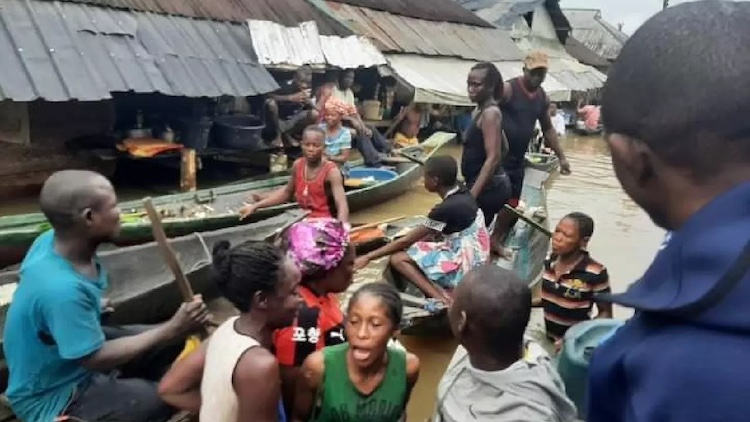By Lisa Vives, Global Information Network
NEW YORK | ABUJA (IDN) — Flooding in the southern and coastal states of Nigeria has taken the lives of more than 600 people, displaced 1.4 million and destroyed roads and farmlands. Officials warn that the situation could continue into November.
Thirty-one of Nigeria’s 36 states have been affected in what media reports have called the worst flooding in a decade, drowning infrastructure and 200,00 homes, partly or wholly destroyed.
The country’s distinctive pitched, painted metal roofs are nearly totally swamped, as are cars and trucks full of food and fuel.
Sadiya Umar Farouq, Nigeria’s Minister of Humanitarian Affairs, charged that inaction by branches of government was to blame for much of the disaster.
“There was enough warning and information about the 2022 flood, but states, local government and communities appear not to take heed,” she wrote on Twitter.
“We are calling on the respective state governments, local government councils and communities to prepare for more flooding by evacuating people living on flood plains to high grounds,” Farouq said.
The unending flood has continued to wreak havoc across Bayelsa State, South-south Nigeria.
According to the News Agency of Nigeria (NAN), the flood, which has displaced thousands of residents, had compelled the electricity company in charge of the state to shut down the public power supply, ad most transformers were submerged.
Nigeria experiences annual flooding, especially in its coastal areas. Authorities blame the disaster on the release of excess water from the Lagdo Dam in neighbouring Cameroon and on unusual rainfalls.
“The water levels are rising to an alarming level,” said Al Jazeera’s Ahmed Idris, reporting from Yenagoa, the capital of Bayelsa state in southern Nigeria. “The ferocity of the flow of water has also intensified. The flood waters from upstream are continuing to come this way.”
Environmentalists note that Nigeria produces less than 1% of global greenhouse gas emissions but suffers disproportionately from climate change, sharp increases in heat, drought and desertification and floods. The country is among the top 10 most climate-vulnerable countries in the world.
Over 12 years ago, the world’s richest countries promised to deliver $100 billion every year from 2020 to 2025 to climate finance (money to help lower-income countries most affected by climate change adapt to its effects). But they’ve fallen short of their pledges, saying that the promised funding now likely won’t be delivered until 2023. But the climate crisis is devastating countries from Pakistan to Sudan right now.
By coincidence, the United Nations Conference on Climate Change, also known as COP27, will be held from November 6 to 18 in the Egyptian Sharm El Sheikh resort. Ahead of the conference, climate activists, such as Adenike Titilope Oladosu, are intensifying the call for climate finance to address the country’s climate crisis.
“The ongoing climate crisis (flood) in Nigeria has destroyed the livelihoods of millions of people that is worth billions of dollars,” Oladosu said. This is a threat to the food security of the entire country. The climate crisis is the next pandemic if we don’t act fast.” [IDN-InDepthNews — 18 October 2022]
Photo: A photo posted on Twitter on October 18 shows flood-impacted communities in Bayelsa State, Nigeria, who depend on canoes to travel around. © Twitter/@YeriDekumo


